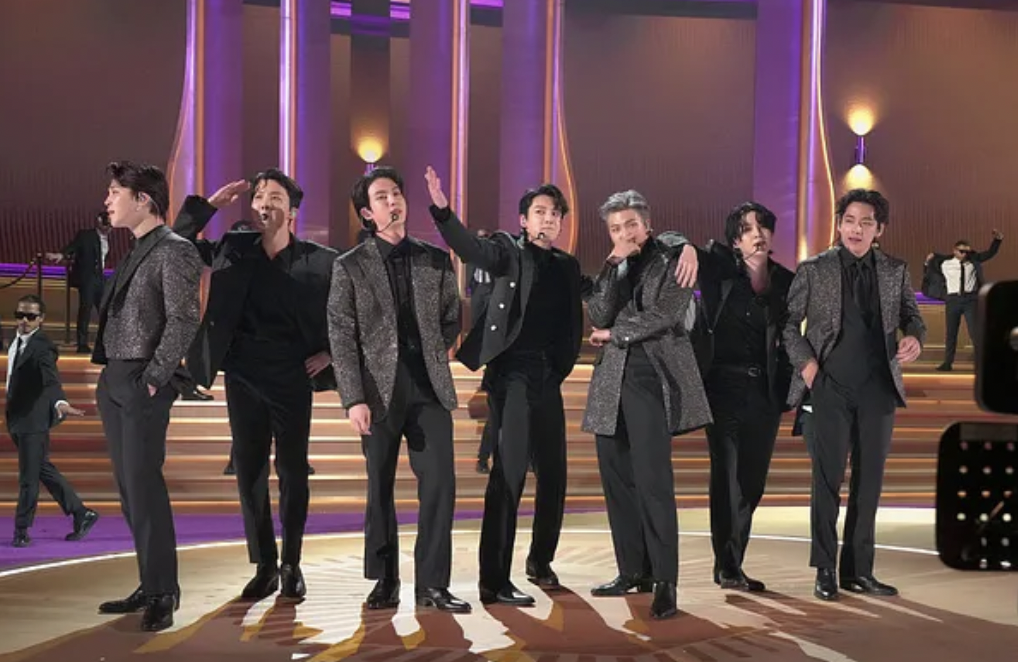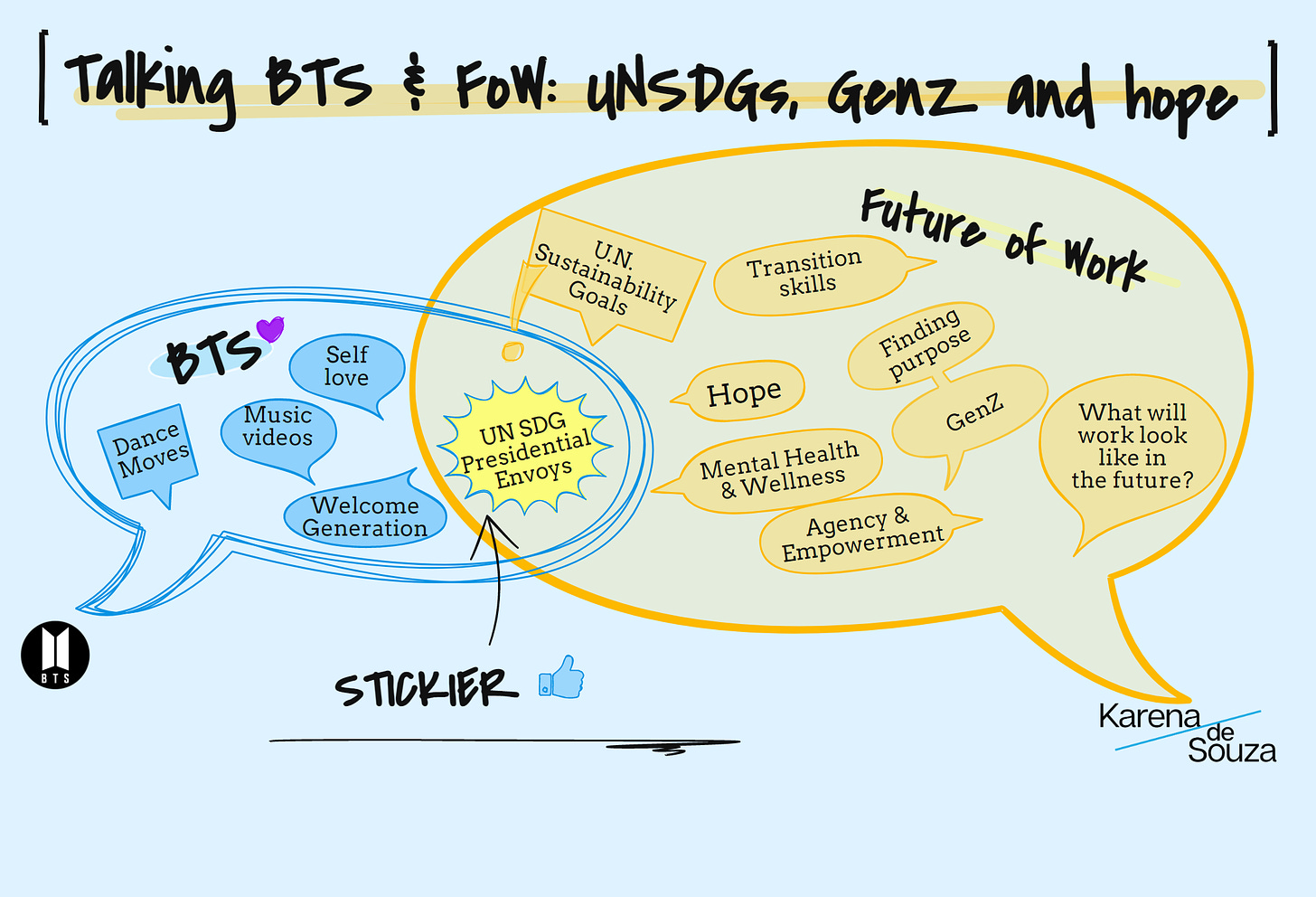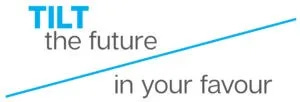
21 Oct Dinosaurs, BTS and K-conomics
Can this be a road map to transition out of the Industrial Era?
If we are wise, we can learn lessons from dinosaurs
[1993] was the year the Korean government observed that the Steven Spielberg dinosaur blockbuster [Jurassic Park] had made more money than Hyundai, the car behemoth that is a wellspring of national pride. So it began to pour investment into cinema, music, and theatre, building giant auditoriums and even regulating Seoul’s famous noreaebangs (karaoke bars) to protect K-Pop’s intellectual property.
You’ve seen my mantra before: “The best idea can come from anyone, anywhere, at any time.” I sometimes make up scenarios in my head at night. Like imagining that 1993 South Korean cabinet meeting. I wonder if the whole discussion started with two ministers in their buttoned-up three-piece suits, arms full of the week’s briefing reports, chatting as their chairs scraped the floor as they took their seats:
”So what did you do this weekend?”
“Me, oh, I went to see Jurassic Park. Such cutting-edge CGI. My wife practically jumped out of her seat.”
“Hey, did you hear how much they netted? I hear their worldwide box office take was over $1 billion dollars.”
”And how much did it cost to make?”
(Eyes widen as they take their seats).
“OK guys. Attention. On today’s agenda: Let’s see what we can do to stabilize the economy, and also, how do we make Hyundai less reliant on this erratic automotive export market?”
(Sidebar conversation as they lean over to each other) “Hey, how much exactly did Hyundai make last year?” …
💡💡💡
From 1:1 to 1:many
It was a simple move from make 1 for 1, to make once, sell to many. The South Korean government chose to invest in their arts industry, creating one of the biggest alternative income and export streams which today accounts for a significant component of their annual GDP.
The government also made a conscious choice to pivot towards high technology industries and diversify beyond their heavy manufacturing bias which included automotive (Hyundai & Kia). Besides investing heavily in education, they supported a range of intelligence-era industries – industrial robotics, bioengineering (SARS, COVID-19), aerospace, gaming, and, of course, the mobile phone industry.
This strategy has been successful as their economy diversifies. Exports have grown. I now consume more Korean content than Canadian on TV, streaming, and Spotify. I’m not the only one as I discovered at book club when our conversation segued from the book in hand to a discussion on the CLOY K-drama stars Son Ye-Jin and Hyun Bin. With Oscar wins for the movies Parasite and Minari the Korean movie industry now has a global presence. When Squid Game competed for attention against Bridgerton, you had to sit up and pay attention.
It is clear. The entertainment sector is becoming a bigger contributor to the Korean economy. It is creating jobs and opportunities for all, but particularly the younger generations.
With this diversification, South Korea is beginning its transition out of a dying industrial era. Call it K-conomics.
When BTS drops out of the equation
Just how effective a transition became apparent earlier this week. You may have read the announcement, which came on the heels of the electric BTS in Busan concert. (You do remember BTS, right? That 7-person boy band from Korea, with the rat-a-tat smahht dance routines? The one K-pop band responsible for 0.5% of South Korea’s economy, according to an NPR report published in 2021?)
BTS to serve in South Korea’s mandatory military service: “Group member Jin will initiate the process as soon as his schedule for his solo release is concluded at the end of October. He will then follow the enlistment procedure of the Korean government,” the group’s record label, BIGHIT Music, said in the statement.
Everyone who’d read my previous pieces on BTS (E32:Sticky to stickier, how the BTS algorithm funnel trapped me) called or contacted me to ask, “Have you seen? BTS is breaking up.” ARMY (their 14+million global fan base and yes, you read that right) are privy to or pay closer attention to the details. The individuals within the seven-person boy band are going to serve their country and do their mandatory 18-month service required of Korean men to stay in readiness to respond to threats from North Korea. But they plan on returning as a band in 2025.
My heart bleeds purple. Sensing my pain, Megan Mellin was super nice. She sent me a photo of herself with the seven BTS cut-outs and a message: Thinking of you from a “Permission to K-Pop” store in Las Vegas! Thanks, Megan!
I was paying particular attention to posts on Twitter and Instagram discussing the potential loss to the Korean economy:
3) BTS is contributing more than $3.6 billion to the South Korean economy every year—equivalent to the contribution of 26 midsize companies, said Hyundai Research institute in 2018.
3) BTS is contributing more than $3.6 billion to the South Korean economy every year—equivalent to the contribution of 26 midsize companies, said Hyundai Research institute in 2018. pic.twitter.com/vjemNgbSUv
— FORTUNE (@FortuneMagazine) October 17, 2022
BTS became sticky on my radar when they released “Permission to Dance” (written by Ed Sheeran) which they taped on the floor of the UN General Assembly. They’d moved beyond good music to music for good. They were there as special envoys to relaunch the UN Sustainability Goals (UN SDG) I wrote more about this in E33:Hunting for Hope :

BTS member Kim Nam-Joon (better known as RM) says “we’re faced with a variety of challenges and difficulties that we need to surmount so we understand the SDGs can be goals that we can work together with globally, locally, in civil society; 17 Goals that we need to meet together. We are today’s generation as well as the future generations, we still have many days left to live. Therefore the SDGs strike a balance between today’s generation and tomorrow’s generation in order to achieve equal benefits for all. Since we are part of today’s generation and tomorrow’s generation, we understand the importance of the SDGs and we feel a great responsibility.”
I’d like to think that BTS had a discussion about their role in setting an example to other young military candidates, and balanced their option to get an exemption from the draft. They have already leaned into setting a good example and making a difference where they can. We’ll miss them. Can’t wait for 2025.
By the way, I count the half hour I just lost looking for those BTS stats on Insta Reels as research, not distraction or procrastination. Here is one of my challenges – when you go into Twitter or Instagram and use the search term BTS Army … well …
The best ideas can come from dinosaurs
Intriguing lyrics, fancy footwork, and musical dynamics grab my attention. I am particularly attracted by interesting twists, clever thinking, and the collisions of ideas – not the “What were they thinking?” but “How did they connect the dots to come up with that idea?”
The best time to plant a tree was 20 years ago,
The next best time is today.
Are there ways to transition gracefully out of the industrial era? Can we look around, be flexible in our thinking, diversify our interests, and alternate income opportunities? This is an important question at global and national levels. But can we also use this philosophy to position ourselves for the transition ahead?
There may be lessons we can learn from the age of the dinosaurs.

If you like and want to share it:
Special thanks to these Write of Passage cohort for offering me insight and feedback on my essay – please follow them if you like their work:
– Father of six Tobi Emonts-Holley, Moira Rose importer Christopher Stadler, geologist Ted Cross (who helped come up with the phrase K-conomics)
Since discovering BTS I have found other amazing artists in the K-Pop world. Enjoy these beautiful voices, craft, and amazing harmonies in this pop music:
Lee Suhyun: City of Stars cover with Lee Dong Wook (thank me later)
Henry: Believer & He’s a Pirate (a Canadian in Korea, he’s a story for another day)
Yoo Hwe Seung: Still love you with Lee Hong Gi
Resources:
https://www.thetimes.co.uk/article/hallyu-how-korean-culture-conquered-the-world-kb2swqwb5
https://www.npr.org/2021/08/06/1025551697/how-bts-is-adding-an-estimated-5-billion-to-the-south-korean-economy-a-year
Other essays in the BTS cluster:
- E32: Sticky to Stickier – understanding algorithms in this new world
- E33: Hunting for Hope – Where BTS and FoW intersect
- E58: Dinosaurs, BTS, K-Pop – alternate revenue streams
A warm welcome to the newest members of our Tribe Tilt!
You are joining a group of people who believe that we can make a difference to the people and places that are precious to us. Please share your thoughts with each other and with me. Because we need good ideas. And the best idea can come from anyone, anywhere, at any time. Stay inspired.
And stay healthy. From there all else becomes possible.
Karena
Is this your first visit? Come join our Tribe:
https://tiltthefuture.substack.com/publish/post/%%checkout_url%%


No Comments